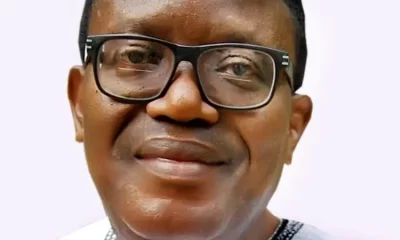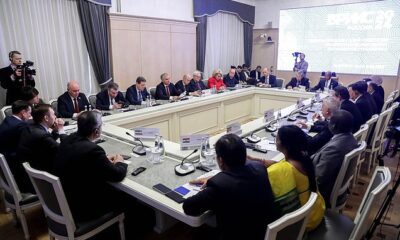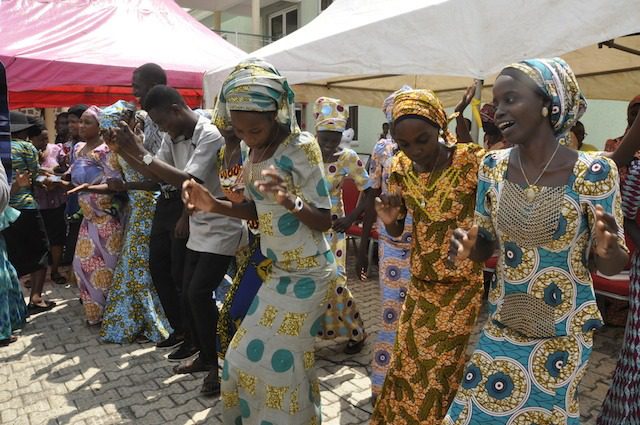National Issues
What I Learnt and Re-learnt In 103 Days -By Ayisha Osori


Ayisha Osori
One, the idea of the spirit of the law is underappreciated. Maybe the concept is restricted to law school but what it means is to understand that little in life can be captured in black and white. The spirit of what a procedure, a provision, or process means becomes a powerful guide, sometimes liberating us from the rigidity that comes from written words. It is the spirit of governance and the social contract between citizens and their representatives that makes it possible for Britain and three other countries to exist without a written constitution. It is our refusal to examine and insist on the essence of an idea or policy that allows, for instance, public officers to run rings round the code of conduct bureau.
Over time the sense of obligation under a social contract between people and their representatives, give people a sense of what is expected from government, its institutions and its officers. As such, someone can comply with the letter of a law and not its spirit – it is why the law is often called an ass. Because sometimes the strict application of the law can create an injustice which confounds logic.
Two, many Nigerians confuse the demand for good governance and democratic governance with political opposition. If you dare suggest that an administration has done wrong or could do better or even, heaven forbid, that Nigeria at its current state of development (giant 152 out of 188 countries) deserves more, then you are a demon from the pits of the opposition party. Or…you are a disgruntled reject of the current administration that has not yet accepted the offer to serve them and your remarks are merely the squawking of the scorned. Few, it seems, are able to come to terms with the foreign notion that a Nigerian might simply love Nigeria and want more for him and themselves.
Three, we are in a dangerous place when anyone who advocates in the hope of improving a social issue or protests against something that offends his or her sensibilities is suspected of having a paymaster. Dissent and resistance to abuse of authority or the everyday complacency and entitlement of public officers (which are part of the governance fabric of Nigeria) are vital to any democracy.
Are there people who can only be mobilised with the promise of reward? Of course. Are there people who will come out rain or shine, to stand for their beliefs and values? Absolutely. And to suggest that only the former exists is irresponsible. Particularly in Nigeria where a conscientious citizen is Sisyphus – doomed to watch the illusion of progress constantly rolled back. The million man marches of the Abacha era and the variants used by Obasanjo and Jonathan have made us suspicious, but also discerning, about those who take public stands on issues. There are clues. Such mobilisation is typically not about a challenge, idea or policy but ten times out of ten for the deification of an individual, and lining up, fighting for ‘transport’ and out of sync, comical protest posters are a give away.
However, we have the fight to end military rule and the defeat of Third Term to show us that there are enough Nigerians who care about the country and issues. Who stand by what is right regardless of how unpopular and unsafe their views will make them, only for enlightened self-interest. If we refuse to be discerning and chose to use only the lens of crowds-for-hire to assess everyone who speaks up on any issue, then we do ourselves a collective and lasting disservice to citizen action.
Four, we are experts at defending the indefensible. We hold others to low standards maybe for the protection of mutual application when we need to be excused ourselves. In a country where government has completely lost the monopoly over the use of violence as evidenced not only by the war in the North-East but by the casual every-day violence we absorb from machine gun wielding armed men – attacking churches, murdering those who offend us with their words and robbing and kidnapping in broad daylight – we should have zero tolerance for violence. Yet, the most elite class of today, second or third generation educated, beneficiaries of the best education Nigeria had to offer and crowned with exposure of a higher degree abroad, still justify the casual violence of some who claim they are easily provoked by words or the mere presence of others.
Five, history and context is nothing; personalisation is everything. This has to be the reason why many have double standards in assessing different administrations. Our governance structures and practice of democracy are hinged on individuals who loom larger than life – we create tin-gods out of them and we can never look them in the eye, much less scrutinise them. The problems that afflict Nigeria are well known, well catalogued and well discussed. At this time in our collective lives, is this the best we can do? The splitting of hairs around letters of the law and deliberate obfuscation of our context will make it hard for us to admit what we know about our past experience with the single-minded determination of people in and around power and the type of person typically selected to be anyone’s vice anything. Maybe a question to debate is: If the country has six valves were we working at full capacity over the last 103 days? Better still, have our valves ever worked at full capacity?
Finally, my resolve to never be swayed by the braying mob – the tyranny of the majority was strengthened. My appreciation of democracy grew along with my understanding of how valuable the citizen is where the role of active resistance is embraced.
Nigerians who want better must look closely at the political parties and leadership anointment process – half the battle is on that ground. Let’s hold fast to our values and what we believe and if we are indeed from a place of love, compassion and a sense of justice… we can take back our country from those who under the guise of leadership, only want to exploit and abuse him.
Ayisha Osori is an ordinary citizen who writes from Abuja. The views in this article are personal and not attributable to any organisation the author is affiliated with.



















